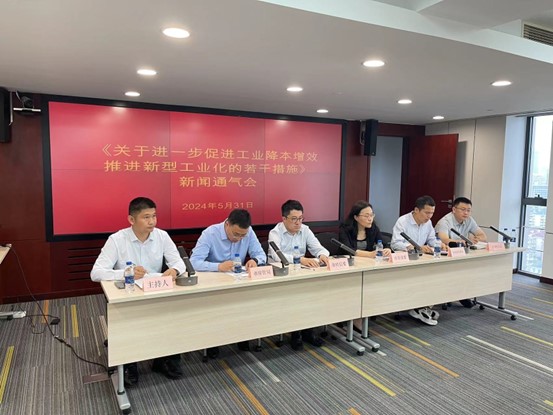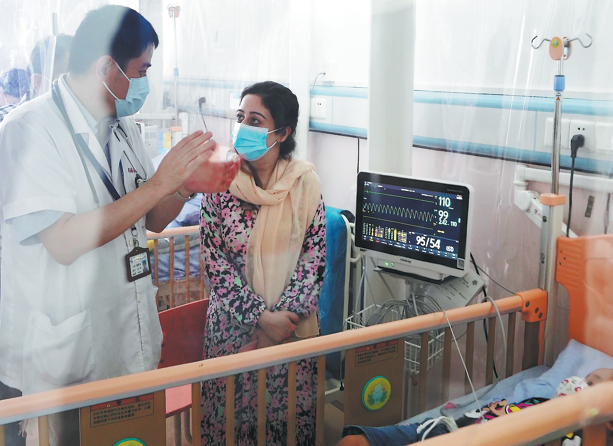Shanghai unveils measures to boost industrial efficiency and cost reduction

Officials from the Shanghai municipal government introduce the city's newly launched measures for further lowering costs and boosting efficiency for enterprises. [Photo/chinadaily.com.cn]
Shanghai has recently unveiled a comprehensive set of initiatives aimed at assisting enterprises in further reducing costs and enhancing production efficiency. This move is set to drive the advancement of new industrialization, announced the municipal government during a press briefing on May 31.
These measures, jointly introduced by nine key departments in Shanghai, including the Municipal Commission of Economy and Informatization, span across five pivotal areas. These areas focus on minimizing operational costs, transforming operational models, optimizing logistics and warehousing work, strengthening tax and fiscal support, and facilitating regulatory compliance within the legal framework.
Regarding operational costs, the measures encompass regulations outlining preferential policies for land, gas, electricity, and internet usage. For instance, enterprises that rely on continuous electricity consumption for operations are now eligible for significantly reduced electricity rates during peak holiday periods such as the Spring Festival. This special rate, known as "deep valley electricity prices for industrial users", is set at 80 percent lower than standard electricity charges. Additionally, to incentivize digital transformation among enterprises, leading projects can now access grants of up to 50 million yuan ($6.9 million) for each.
Inspired by successful cost reduction strategies implemented in other provinces and cities, the measures also introduce a range of innovative approaches. Notably, industrial parks are encouraged to customize their industrial facilities through a "lease before sale" model. This measure targets foreign corporate headquarters that may not immediately approve substantial reinvestment budgets. This approach is designed to progressively stimulate project investments and attract high-quality industrial enterprises and projects.
Furthermore, the briefing emphasized the establishment of a standardized system for administrative law enforcement inspections, guided by the principle of "responding to requests while minimizing disturbances". This systematic approach aims to streamline administrative inspections related to enterprises, thus ensuring efficiency and avoiding redundant work.

